As part of Pak-Afghan Youth Stakeholders Engagement, Beyond Boundaries V (Track 1.5/II), CRSS arranged some interactive meetings in Lahore with the Ministry of Education (Punjab), TEVTA, Lahore University of Management Sciences (LUMS), and the University of Lahore (UOL).
Day One Activities:
TEVTA Chairman
Then, the delegates visited TEVTA (Technical Education and Vocational Training Institute) and met the chairperson of the institution, Mr. Ali Salman Siddique. Mr. Siddiqui gave a thorough overview of how TEVTA has benefited thousands of students across the Punjab province through its vocational and technical training programs.
The Chairman said that TEVTA has introduced some programs to mitigate unemployment in Pakistan; the same models could be applied in Afghanistan to help the Afghan youth prosper in various fields and play a significant role in building the country’s economy. He underscored that TEVTA is ready to collaborate with the relevant stakeholders and would do the needful to facilitate vocational and technical programs in Afghanistan.
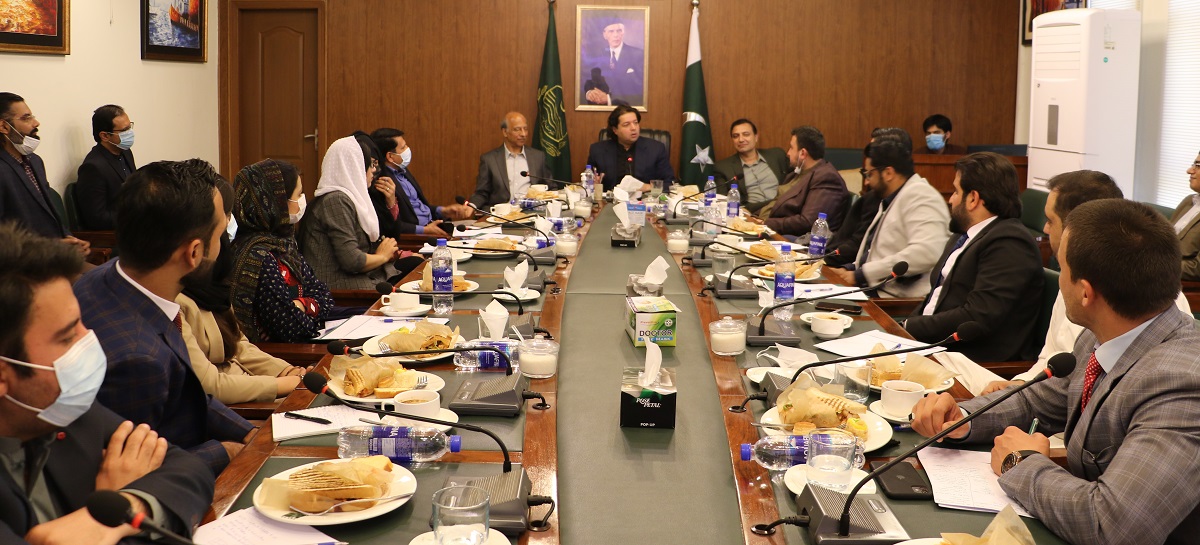
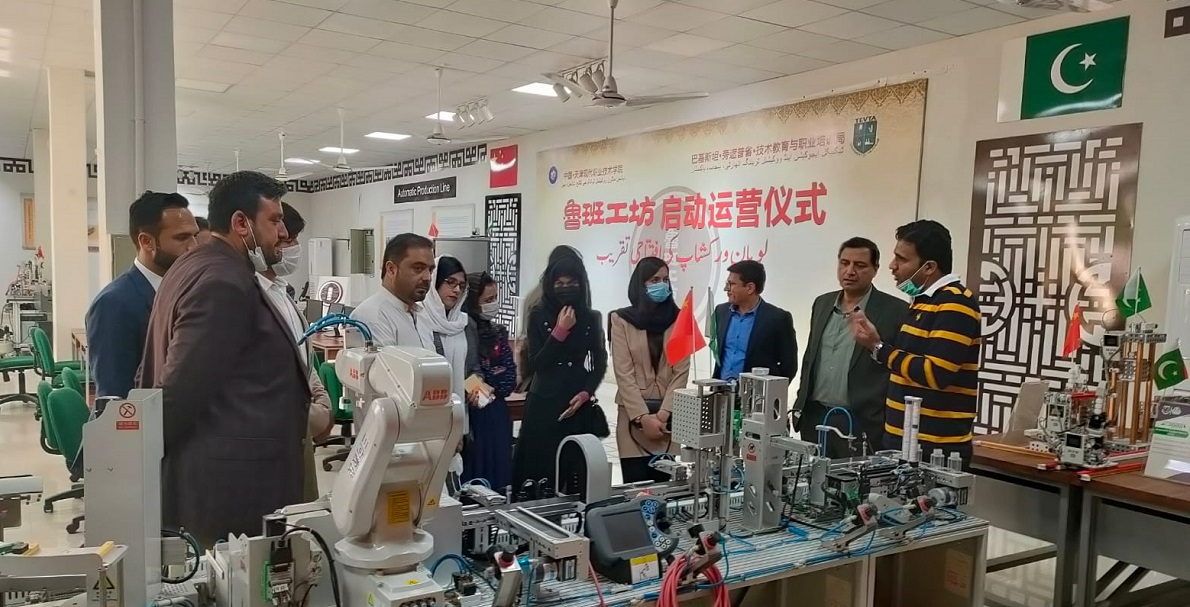
Provincial Minister for Education
On the first day, the Afghan delegates met the provincial minister of education, Mr. Raja Yassir, and discussed Afghanistan’s current political and social scenario. Mr. Yasir informed the delegates of the educational opportunities for Afghan students, along with government scholarships, private universities are offering admission to Afghans. He also said that the Punjab government is planning to offer a provincial quota for Afghan students.
Afghan delegates raised the concern that they face issues during the admission process because of the equivalency they are to receive from HEC and it takes almost a year until the process completes. To which, the minister responded that MoE can discuss with HEC and come up with a mechanism that allows Afghan students to study on a probationary basis until they get the equivalence certificate.
The delegates proposed that instead of making the Afghan students go through the tedious process of equivalence, university admissions should be done through standardized testing and the criteria for both Pakistani and Afghan students should be the same.
The delegates also requested academic collaboration between Pakistani and Afghan universities especially in the field of agriculture as Afghan students lack modern skills and techniques that can expedite the agricultural system in the country. The education minister said that since academic collaboration between institutions does not concern the recognition of the de facto government of Afghanistan, this can be done on a priority basis and the ministry shall do the needful to ensure such academic exchanges.
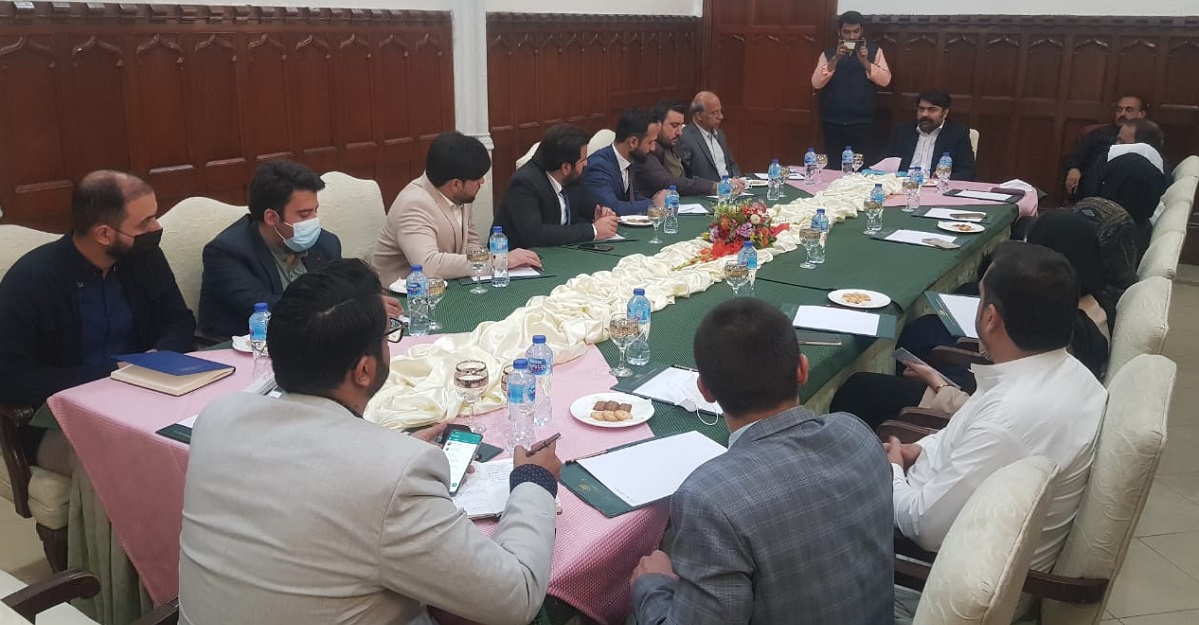
Day Two Activities:
Lahore University Management Sciences (LUMS)
On the second day, the Afghan delegates visited LUMS where they first attended a lecture on Afghan Studies by Dr. Rasul Bux Rais. The lecture was followed by an interactive discussion between the Afghan delegates and Pakistani students at LUMS. This proved fruitful as it enabled the Pakistani students to develop a better understanding of Afghan issues. The Afghan delegates were also given a tour of the National Incubation Center (NIC) at LUMS. They were briefed on the steps to incubate a business and how LUMS could facilitate Afghan individuals in terms of business incubation.
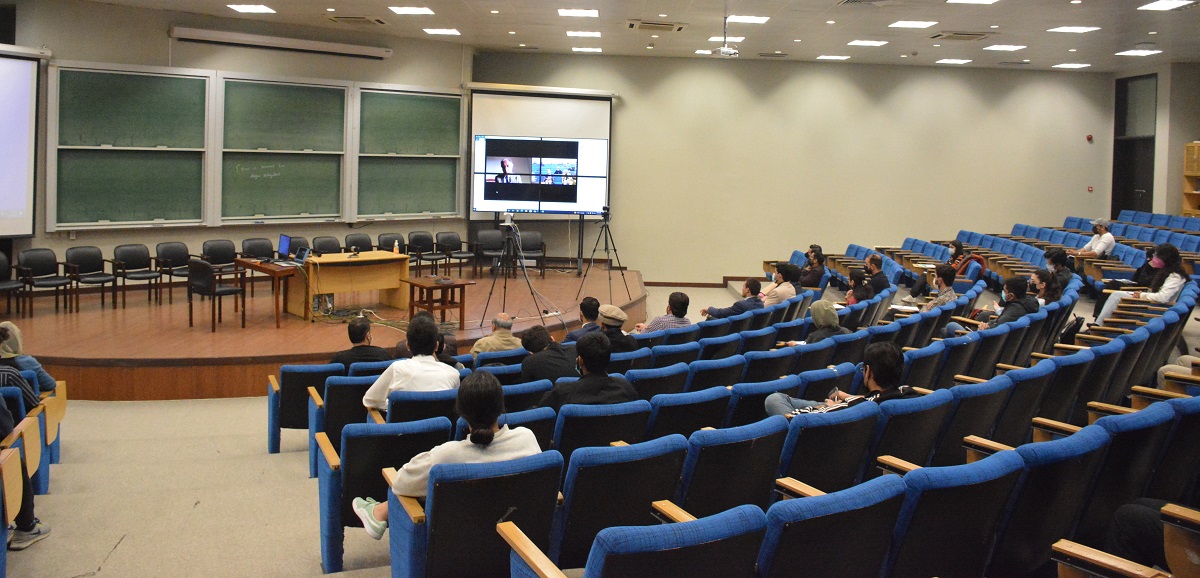
University of Lahore (UOL)
The delegates were also given a tour of the University of Lahore (UOL). Dr. Rabia Akhtar, Head of Integrated Social Sciences, facilitated the session at UOL and apprised the participants of academic opportunities the university offers for Afghan youth. The delegates also interacted with the Afghan and Pakistani students who shared their experience of studying at UOL and the institute’s role in transforming their academic careers. The chancellor also told the delegation that 140 Afghan students are already studying at UOL. He also offered to invite 100 students from Afghanistan to attend training on various topics and expressed the wish to initiate an exchange program between Kabul University and UOL.
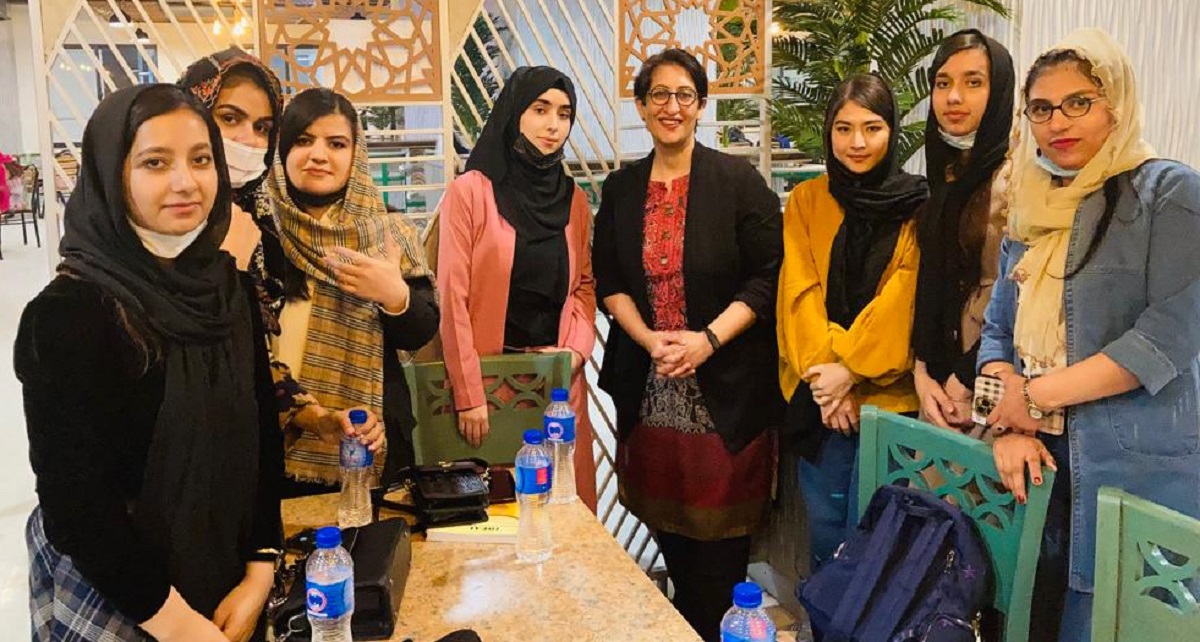
Day Three Activities:
Meeting with FCDO
On the last day, the delegates had a meeting with the representatives from FCDO. Ms. Saba Jaswal and Mr. Ismail Khan led the meeting and asked the delegates to share their experience of the program and suggestions for the future. The minutes of the meeting are as follows:
- Pakistani institutes should offer training for business incubation and expansion in Afghanistan;
- Cooperation desired in the education, trade, health, and agriculture sector;
- Agriculture experts and students from Pakistani universities should visit Afghan universities and share their expertise through various training programs as currently the agriculture sector in the country lacks the machinery and expertise needed to ameliorate crop production;
- Most of the participants emphasized the increase in the number of scholarships for Afghan students, especially women;
- One of the participants, who was one of the Fulbright 2021 candidates, expressed his concern regarding the closure of the Fulbright program for Afghanistan. He also said that the Afghans hope Chevening would not be closed for Afghans and the UK government would do the needful to ensure more opportunities for them;
- It was also mentioned by one of the participants that the Allama Iqbal Scholarship Programme in Pakistan has helped many Afghans study free of cost, but the selection criteria for it is not transparent and merit is not prioritized.
- All the participants said that they were inspired by TEVTA and NIC (LUMS) and expressed their wish to have similar kinds of institutes in Afghanistan;
- The delegates also requested to have more programs on youth engagement to strengthen people-to-people contact and increase participation of youth in the peace and policy-making processes, the two most crucial elements for the people of Afghanistan;
- Delay in visas and letters of border crossing is still an issue for many Afghans. The Visa process should be made easier and speedier;
- The delegates also requested that the Pakistani government should increase engagement with the Taliban and convince them to have an inclusive government and uphold human rights and civil liberties;
- A female delegate also proposed that Pakistani NGOs should increase collaboration with local Afghan organizations to work on women’s issues and youth programs;
- The delegates also said that there have been instances where the border was closed exactly during the harvest season which caused extreme financial loss to the Afghan farmers and crop owners. Such steps from Pakistan breed mistrust and anti-Pakistan sentiments among the Afghans. The common Afghans, however, love common Pakistanis.
View on Taliban
- The delegates also briefed the FCDO representatives on the general public’s treatment at the hands of the Taliban. They said that there are two groups within the Taliban i.e., Kandahari and Haqqani. While explaining anti-Pakistan sentiment among the Afghans, a delegate said that the Haqqanis are pro-Pakistan as they have been closely connected with Pakistan and most of them received an education here, but the Kandahari group is not so friendly towards Pakistan and is more ‘nationalist’ as well as less staunch in terms of imposing religious dogma.
- A participant also said that life for women in Afghanistan is not as ‘unbearable’ as the media shows, for instance, girls and women can be seen working in Jalalabad and other major cities, one can see female teachers and doctors too.
- On Taliban and democracy, a delegate commented that if Taliban switch to democracy, they would face the biggest opposition from within the group, as, even now, many Taliban at the lower ranks are ‘disappointed’ with the leadership because they still see foreign soldiers on Afghan soil and true Shariah is still not imposed.
- Many delegates agree that the Taliban are still a bit lenient with people, especially girls and women, because of the pressure of social media, but, at the same time, many violations are occurring in the areas where social media is not popular. This is the very reason that many Taliban officials deny all sorts of human rights violations upon being asked, they simply say, “this is not true” or “we are not aware”. If the latter is the case, then this shows a huge communication gap between the upper and lower-rank Taliban at the time when the leadership is striving to get recognized by the international community while the lower-rank officials do not even know they have to improvise and accept new realities.
- Many non-Pashtuns in Afghanistan feel that the Taliban is a pro-Pashtun movement and does not favor all the ethnic groups in the country. Delegates said that the Taliban at lower ranks usually treat the non-Pashtun public impolitely.
- It is worth noting that female participants’ views on the Taliban are different from those of male participants and what works for men in Afghanistan under the Taliban rule does not for women. All in all, the situation for women is tense, and the female delegates chiefly emphasized Pakistan’s engagement with the relevant stakeholders in Afghanistan to advocate for women’s rights through open discourse and political channels.
How delegates plan to apply these experiences in their communities?
- One of the female delegates said that practically they cannot do anything right after the program but can certainly share this experience and insight gained on youth activism and education once things are stable in their communities;
- The delegates also proposed that they could start with social media, posting testimonials or a brief account of the visit to spread the word in their communities on Pakistan’s role and intent for capacity building of Afghan youth. Besides, such candid accounts of these experiences would help in highlighting the positive side of the Pak-Afghan relationship and promote goodwill between the two countries;
- Delegates also said that there would not be any instant road-map activities related to this program, but, if the host organizations of such dialogues like CRSS expect a significant outcome then the frequency of such visits should be increased and more themes should be introduced with a strong focus on youth participation in political and democratic processes, human rights, women empowerment, entrepreneurship, etc.
Impact
Some of the small but result oriented developments that took place during the visit include:
- The minister of education, Punjab, promised to take up the issue of equivalency – that Afghan students face during admission process – with the HEC and formulate a mechanism that facilitates them study on a probationary basis until they get the equivalence certificate.
- Chairperson TEVTA offered collaboration to introduce same models in Afghanistan that helped mitigate unemployment in Pakistan. Regardless of the materialization of this collaboration, institutions like TEVT have served as an inspiring example before Afghan future leaders, to advocate for developing launching initiatives in Afghanistan.
- The University of Lahore’s vice chancellor offered training opportunity for 100 Afghan students and shared plans to launch exchange program between Kabul University and UOL.
We believe that they can lead up to a more significant results in the future, one multiplied by time and future engagements with Afghan youth.
Furthermore, as for the Afghan youth delegates’ request to Pakistani government to increase engagement with the Taliban and convince them to have an inclusive government and uphold human rights and civil liberties. As something coming from the youth in Afghanistan, this is considered significant and also indicator to involve them in the dialogue processes in the future.
We understand that that the participants during such a short period of time were exposed to multiple opportunities in Pakistan – for dialogue and their professional, educational, and entrepreneurial prospects. However, we also believe that immediately post the such engagement may not always be the perfect time to gauge the outcome of knowledge transfer.
To keep the track of outcome with this group going forward, we can reach out to them perhaps a month down the line on:
- In what ways was the visit helpful?
- In what ways do they intend to utilize the knowledge learned through visit?
- Have they been able to use the exposure opportunities in any way, no matter how small?
- Do you think that the knowledge transfer through initiatives is practical considering the situation in Afghanistan?
This way, these questions can help us gauge the outcome at knowledge, attitudes and practices level.
